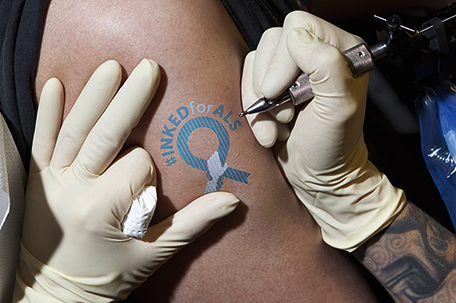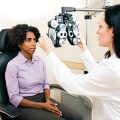
BPT
When Phil Green, a husband and father to four children, was diagnosed with ALS in 2018, he decided he was going to dedicate his life to advocating for other people and families affected by the disease.
“To me, I was still the same person that I had always been,” Green says as he recounts the day he first had to ask for help buttoning up his shirt. “Suddenly, I felt like I was the only person in the world that was diagnosed. I didn’t know anyone who had ALS and there wasn’t much information to help me and my family better understand what was going to happen to me. The first thing we did was try to figure out what treatments were available to slow down the disease, and we found that there were limited options.”
ALS, which stands for amyotrophic lateral sclerosis (also known as Lou Gehrig’s disease), eventually robs people of their ability to walk, talk, swallow and breathe. Green’s diagnosis hasn’t stopped him from becoming an advocate and ally to make the ALS community’s voice heard. He is one of thousands aiming to spark conversations about ALS with hopes that progress can be made to better understand and treat the disease.
Over the last three years, Green has been actively supporting many other people with ALS and their caregivers throughout their journeys, hoping to make as big a difference as he can, while he can. He is also on the boards of various ALS organizations across the country. For example, a former football player at the University of Washington, Green is on the board of Team Gleason, a nonprofit founded by former New Orleans Saints player, Steve Gleason, and also part of the patient-led organization, I AM ALS. He says more attention, research and funds are needed to bring new treatment options forward. Currently, there is no cure for ALS.
ALS is a relentlessly progressive neurodegenerative disease. For reasons that are not well understood, in people with ALS, motor neurons that allow the brain to communicate with muscles throughout the body begin to deteriorate. People with ALS experience loss of muscle control, and ultimately, death. Many individuals suffer from significant symptoms and impaired ability to function independently as early as six months from diagnosis or 18 months from symptom onset.
“From my point of view, the more people that know about ALS and how uniquely cruel it is, the more support we can get for broader funding and more compassion for the disease,” Green says. “I feel like too many people are just OK with us progressing and dying because the disease has mystified scientists. The more researchers we can have focused on the mechanisms of the disease and the identification of biomarkers, the greater the chance of actually moving forward in a disease that historically has not seen much knowledge gain.”
Green has had a lasting impact on many touched by ALS. He has even impacted those with no connection to ALS until they met him. Take Dan White, for example, who befriended Green when they bonded over their love of sports. Almost a decade later, when Green and others in the ALS community participated in Amylyx Pharmaceutical’s annual INKEDforALS campaign for ALS Awareness Month in May by stamping temporary tattoos on themselves, White took it to the next level and tattooed the symbol on his arm — for life.
“I did it for many reasons, the primary one being selfish,” he said. “I wanted to see the symbol every day because even if I felt I was having a bad day, I could look down and remember that my day is not so bad. My friend has been dealt a much worse hand in life, and he’s making the most out of it. The world needs to know that people as strong as Phil exist.”
Green and White ask that others join in to help shine a light on ALS to promote advancing the science and potentially disrupting the disease’s course.
“It’s unacceptable that when Lou Gehrig made a speech 80 years ago, he felt we would be able to cure this in his lifetime,” they said. “We need to move at what we call the ‘ALS clock’ and help save the people living with the disease today.”
ALS remains a devastating disease, but some researchers believe this is a hopeful and exciting time in ALS research with many promising clinical trials and investigational products being tested at a faster pace than ever.
An unmet need continues to exist in ALS but advocates like Green continue to spark conversations that inspire hope and could lead to life-changing advances.
To learn more about ALS and available resources, visit: www.als.org and www.alsfindingacure.org

















Leave a Comment